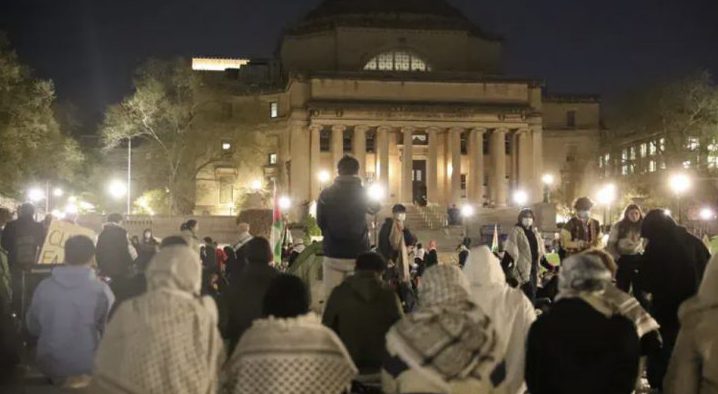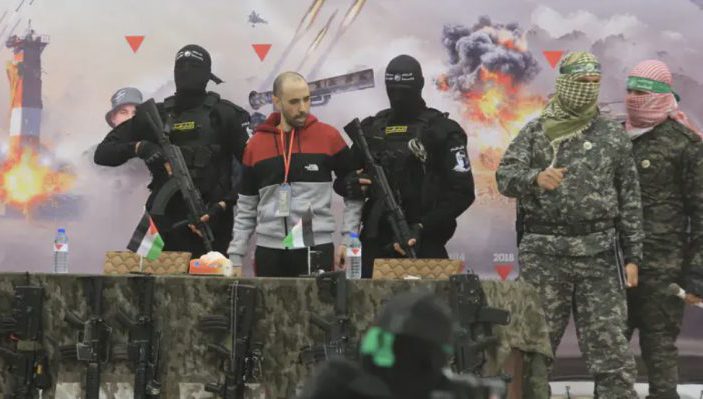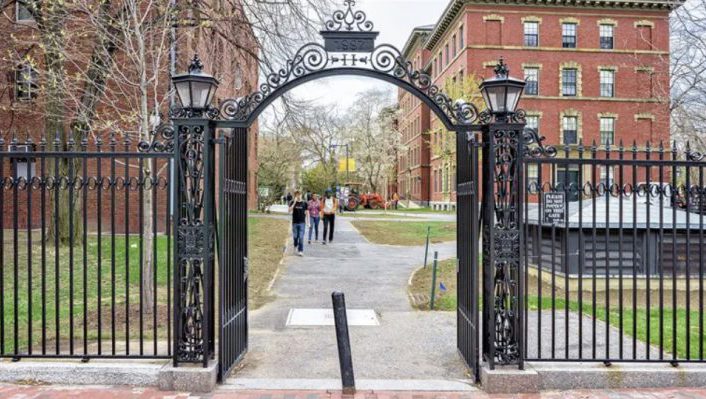Memorandum signed by Secretary of State Marco Rubio invokes foreign policy concerns in explaining reasons for the request to deport Mahmoud Khalil, a Columbia University graduate student and anti-Israel activist..
As a court-imposed deadline approached, the US government on Thursday submitted a brief, two-page memorandum signed by Secretary of State Marco Rubio in its attempt to deport Mahmoud Khalil, a former student at Columbia University who organized anti-Israel protests on campus.
The memo, reviewed by The Associated Press, asserts that Khalil’s continued presence undermines US initiatives to combat antisemitism both domestically and abroad. Despite acknowledging that Khalil’s actions were “otherwise lawful,” Rubio stated that allowing him to remain in the United States would be detrimental to efforts aimed at protecting Jewish communities and ensuring campus safety.
“Condoning antisemitic conduct and disruptive protests in the United States would severely undermine that significant foreign policy objective,” Rubio wrote in the undated document, according to AP.
The filing came in response to an order by Immigration Judge Jamee Comans, who had directed federal officials to present evidence justifying Khalil’s detention ahead of a hearing scheduled for Friday. Khalil was apprehended by immigration officers on March 8 in the lobby of his New York City apartment building and was transported to Louisiana.
His detention marked the beginning of a broader enforcement effort aimed at international students involved in campus demonstrations opposing Israeli military action in Gaza. Khalil, who served as a student liaison during protests at Columbia, has not been criminally charged nor arrested, and denies accusations of antisemitism.
The government accuses Khalil of failing to disclose on his residency application what it described as his “membership” in the United Nations’ Palestinian refugee agency, UNRWA.
Attorneys Marc Van Der Hout and Johnny Sinodis, who represent Khalil, criticized Thursday’s filing as an attack on constitutionally protected expression.
“After a month of hiding the ball since Mahmoud’s late-night unjust arrest in New York and taking him away to a remote detention center in Louisiana, immigration authorities have finally admitted that they have no case whatsoever against him,” the attorneys said in a joint statement.
“There is not a single shred of proof that Mahmoud’s presence in America poses any threat,” they added.
In response to inquiries, Department of Homeland Security spokesperson Tricia McLaughlin stated, “DHS did file evidence, but immigration court dockets are not available to the public,” and declined to clarify whether any further materials had been submitted.Khalil was apprehended by immigration officers on March 8 in the lobby of his New York City apartment building and was transported to Louisiana.
His detention marked the beginning of a broader enforcement effort aimed at international students involved in campus demonstrations opposing Israeli military action in Gaza. Khalil, who served as a student liaison during protests at Columbia, has not been criminally charged nor arrested, and denies accusations of antisemitism.
The government accuses Khalil of failing to disclose on his residency application what it described as his “membership” in the United Nations’ Palestinian refugee agency, UNRWA.
Attorneys Marc Van Der Hout and Johnny Sinodis, who represent Khalil, criticized Thursday’s filing as an attack on constitutionally protected expression.
“After a month of hiding the ball since Mahmoud’s late-night unjust arrest in New York and taking him away to a remote detention center in Louisiana, immigration authorities have finally admitted that they have no case whatsoever against him,” the attorneys said in a joint statement.
“There is not a single shred of proof that Mahmoud’s presence in America poses any threat,” they added.
In response to inquiries, Department of Homeland Security spokesperson Tricia McLaughlin stated, “DHS did file evidence, but immigration court dockets are not available to the public,” and declined to clarify whether any further materials had been submitted.
In a letter written from detention, Khalil rejected the allegations and framed his detention as retaliation for his political views. “This is a direct consequence of exercising my right to free speech as I advocated for a free Palestine and an end to the genocide in Gaza,” he wrote.
Meanwhile, a separate legal battle over his detention is unfolding in federal court in New Jersey, where a judge has refused the government’s attempt to move the case to Louisiana but has yet to decide whether Khalil should be released.





